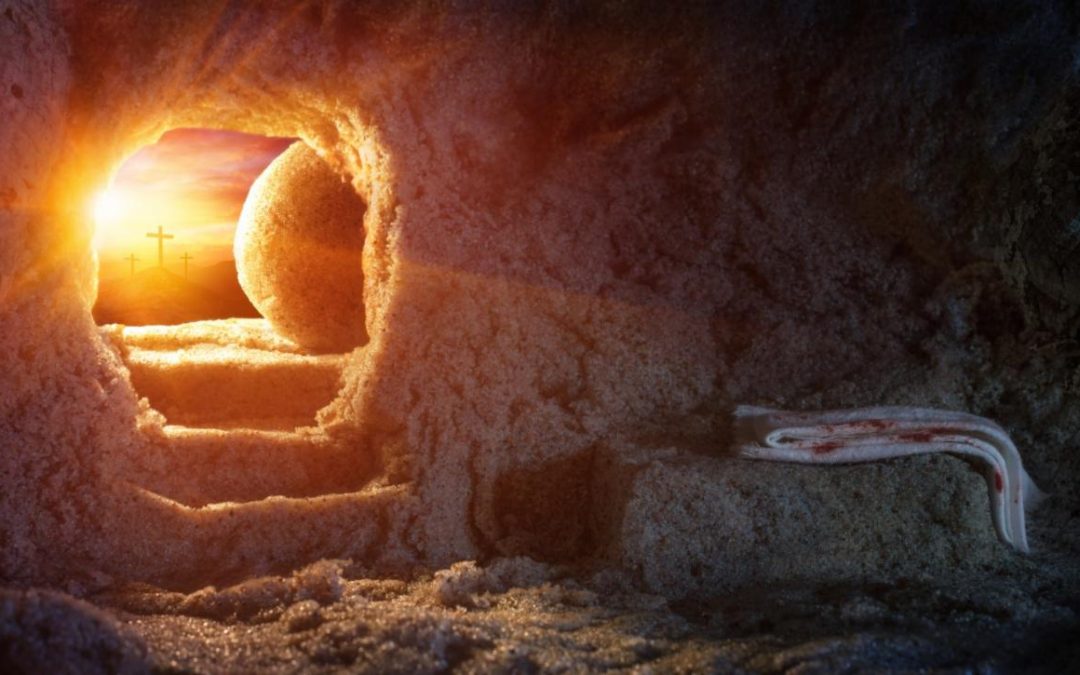
by Eron Henry | Apr 18, 2025 | Blog, News
Beloved Lott Carey Family,
Grace and peace to you in the matchless name of our Risen Lord and Savior, Jesus Christ.
This Easter, as we gather across continents and cultures to celebrate the resurrection of Jesus, we are reminded that the tomb is empty, and hope is alive. The Resurrection is not merely an event in history, it is a divine declaration that death does not have the final word, that despair will not define our destiny, and that God’s love will always outlast the brokenness of this world.
In a time marked by global uncertainty, we hold fast to this Gospel hope. As America grapples with “America First” policies that have led to the mass deportation of countless persons, many of whom are our brothers and sisters in Christ, we grieve the suffering and displacement. We witness the deepening crisis in Haiti, the unrelenting war in Ukraine, and the growing consequences of climate change across the Global South. These are not abstract headlines to us; they are real burdens carried by members of the global church.
And yet, even in the shadow of the cross, we proclaim the light of the Resurrection. We are people of HOPE!
Through it all, the mission of Lott Carey endures, sustained by the unshakable provision of God. Where there is need, we see God’s hand making a way. Where there is fear, we see faith rising. Our partners around the world, missionaries, pastors, educators, healers, are living witnesses to the power of the Resurrection. Together, we embody the Gospel that declares: He is risen indeed!
Let us be reminded this Easter that Resurrection is not only a promise of eternal life but a call to courageous living now. It calls us to advocate for justice, extend compassion, and stand in solidarity with the marginalized. It calls us to pray, to serve, to give, and to never lose heart.
The same power that raised Jesus from the dead is at work within us. So we move forward with holy expectation, believing that even in the darkest night, the morning will come. We trust that God, who began a good work in us, will be faithful to complete it.
May your hearts be lifted this Easter with renewed purpose, fresh joy, and unwavering hope.
Christ is risen! He is risen indeed!
In the hope of the Resurrection,
Emmett L. Dunn
Executive Secretary-Treasurer/CEO
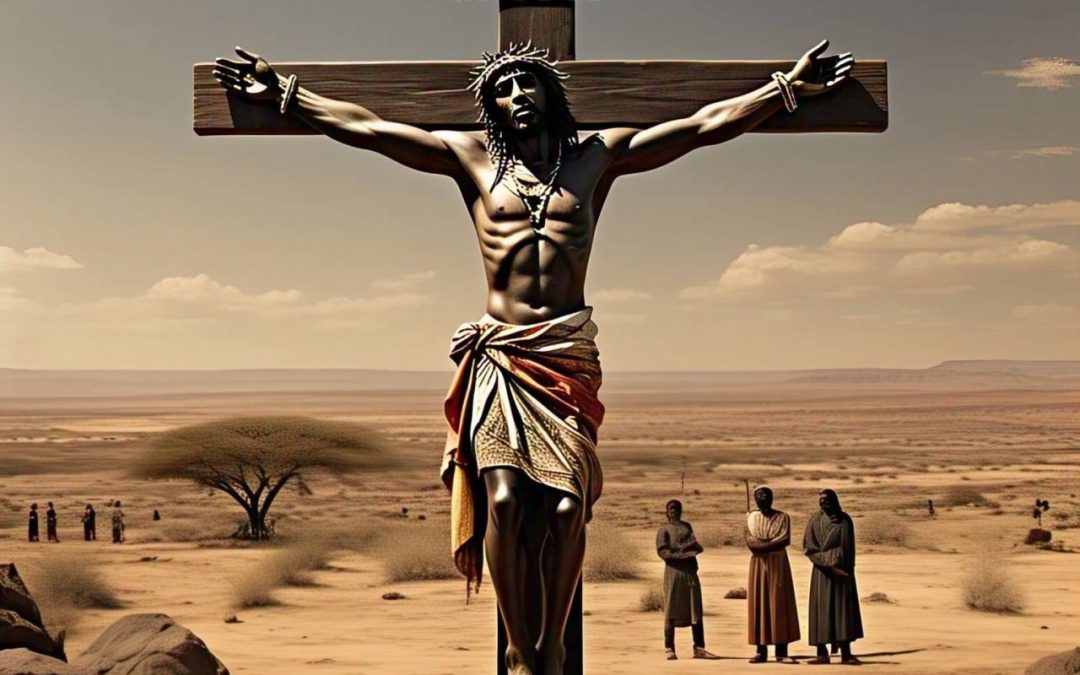
by Eron Henry | Apr 18, 2025 | Lent 2025
The cross represents the antithesis of worldly power. Roman crucifixion was designed not merely to kill but to humiliate, to demonstrate imperial might by reducing victims to objects of public shame. Yet it is precisely this instrument of domination that becomes, in the Christian narrative, the supreme revelation of divine power. As Paul writes to the Corinthians, “The message of the cross is foolishness to those who are perishing, but to us who are being saved it is the power of God” (1 Corinthians 1:18).
What kind of power manifests in crucifixion? Not coercive power that controls through force, but transformative power that operates through self-giving love. On the cross, God in Christ absorbs violence rather than perpetuating it, suffers injustice rather than inflicting it, and experiences abandonment rather than abandoning humanity. This represents power reframed as capacity for relationship rather than capacity for control.
The scandal of the cross lies in its revelation of divine vulnerability. The philosophical assumption that God must be impassible—incapable of suffering—collides with the crucified Christ. In Jesus’s cry, “My God, my God, why have You forsaken me?” (Mark 15:34), we encounter not divine detachment but radical solidarity with human experience.
Lutheran theologian Jürgen Moltmann articulates this as “the crucified God,” suggesting that the cross reveals something essential about God’s nature, not merely a temporary disguise. If, as Christians confess, Jesus fully reveals God’s character, then divine power must fundamentally include the capacity for vulnerability, suffering, and self-limitation.
This understanding of power displayed through vulnerability reshapes Christian ethics and praxis. It suggests that the church witnesses most authentically to divine power not through domination, wealth, or influence, but through solidarity with the suffering, service to the marginalized, and willingness to bear the cost of love.
For believers, the cross challenges the idolatry of self-protection. If God’s ultimate power manifests in self-giving, disciples cannot claim to follow this God while organizing their lives around self-preservation. The way of the cross invites participation in divine vulnerability—not as masochism, but as the pathway to authentic relationship and transformative presence in a broken world.
Prayer
God of astonishing power, who chose vulnerability over force, relationship over domination, and love over self-protection:
We stand before Your cross in wonder. Where we expected demonstrations of might, You gave demonstrations of mercy. Where we anticipated conquest, You offered compassion.
Forgive us for seeking power that elevates us above others, when Your power lifts others toward wholeness. Forgive our pursuit of security that insulates us from the world’s pain, when You entered that pain to transform it.
By Your Spirit, crucify in us the desire to control rather than connect, to dominate rather than serve, to preserve ourselves rather than pour ourselves out.
May we discover in the shadow of Your cross that true strength flows from surrender, that authentic power manifests in love, that Your seemingly foolish weakness Transforms more deeply than all our might.
As we follow Your cruciform way, make us vessels of Your paradoxical power, not to be served, but to serve; not to grasp, but to give; not to avoid suffering, but to transform it through the mystery of resurrection love.
Amen.
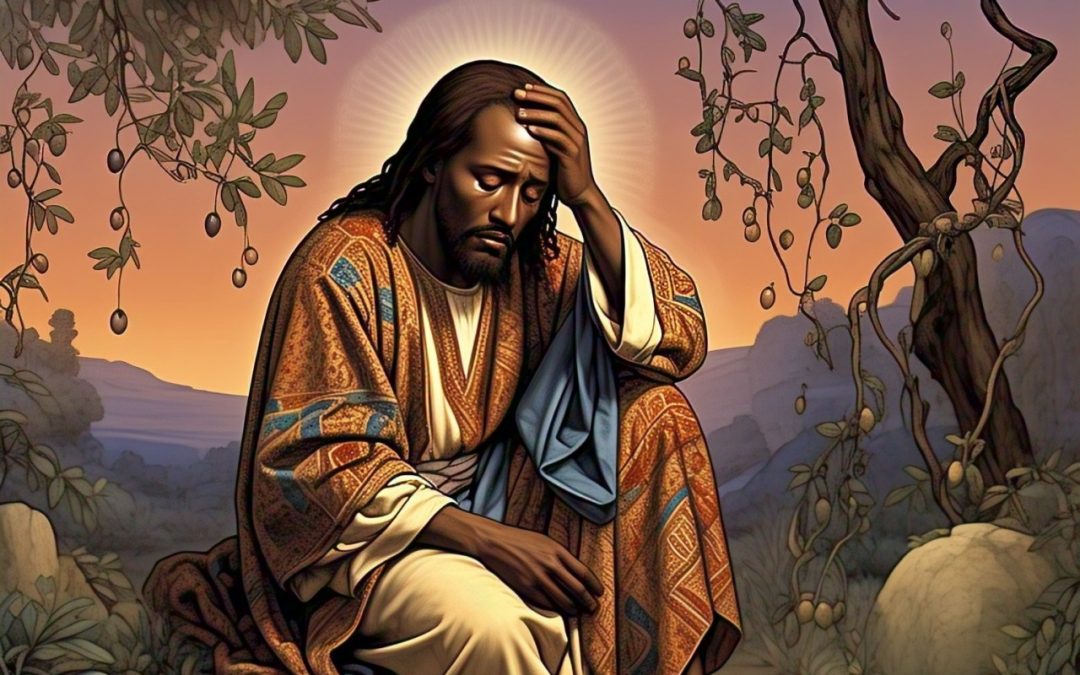
by Eron Henry | Apr 17, 2025 | Lent 2025
Maundy Thursday is a night where love and betrayal, communion and abandonment, authority and servanthood converge. The word “Maundy” derives from the Latin mandatum, meaning “commandment,” referring to Jesus’ words: “A new commandment I give to you, that you love one another: just as I have loved you, you also are to love one another” (John 13:34).
This night begins with an extraordinary act of humility. The Creator of the universe removes His outer garments, wraps a towel around His waist, and kneels before His disciples to wash their feet; a task reserved for the lowest servants. Peter’s initial resistance reflects our own reluctance to accept the radical nature of God’s self-emptying love. Yet Jesus insists: “If I do not wash you, you have no share with me.” In this reversal of human hierarchy, we witness divine love expressing itself not through domination but through service.
At the table, Jesus transforms the Passover meal into something altogether new. Taking bread and wine—ordinary elements of sustenance—He imbues them with extraordinary significance: “This is my body… This is my blood.” With these words, He establishes a memorial that will transcend time and culture, inviting believers across millennia to participate in His sacrifice. The meal that commemorated Israel’s deliverance from Egyptian bondage now points toward humanity’s deliverance from sin and death.
As the night deepens, Jesus leads His disciples to Gethsemane. Here, in the quiet darkness of an olive grove, we witness the full humanity of Christ. “My soul is very sorrowful, even to death,” He confesses to His closest friends. Three times He prays for the cup of suffering to pass from Him; three times He concludes with perfect submission: “Nevertheless, not my will, but yours, be done.” The struggle is real, yet His surrender is complete.
The night culminates in betrayal. With a kiss—a sign of affection twisted into treachery—Judas identifies Jesus to the arresting party. The disciples, despite their earlier protestations of loyalty, scatter into the darkness. The One who had just washed their feet and broken bread with them now stands alone, abandoned by all but the Father.
Maundy Thursday invites us to contemplate the cost of love that gives itself completely, the beauty of a God who serves rather than demands service, and the mystery of communion that transcends betrayal. It challenges us to examine whether we, like Peter, resist Christ’s humble love, or like Judas, betray it for temporary gain, or like the other disciples, abandon our commitments when they become costly.
Prayer
Lord,
On this holy night, we remember how You knelt before Your disciples, washing their travel-worn feet with Your holy hands. Forgive our pride that resists Your humble service and our reluctance to follow Your example of loving servanthood.
We recall how You took bread and wine, transforming them into vessels of grace and remembrance. Thank You for inviting us to Your table, where we encounter Your presence and receive Your life. May we never approach this sacred mystery with casual indifference.
We contemplate Your agonizing prayer in Gethsemane, where Your human will surrendered completely to the divine purpose. In our own moments of suffering and resistance, teach us to pray as You prayed: “Not my will, but Yours be done.”
We acknowledge the betrayals that pierced Your heart on this night—Judas with his kiss, Peter with his denials, the others with their flight. Forgive us for the times we too have betrayed Your love through our actions, words, or silence.
Grant us grace to fulfill Your mandatum novum—Your new commandment—to love one another as You have loved us. May our love be neither sentimental nor selective, but sacrificial and inclusive, reflecting the love You demonstrated at the basin and on the cross.
As the shadows of this day deepen toward Good Friday, keep us watchful and faithful, ready to follow You even to Calvary.
In Your name we pray.
Amen.
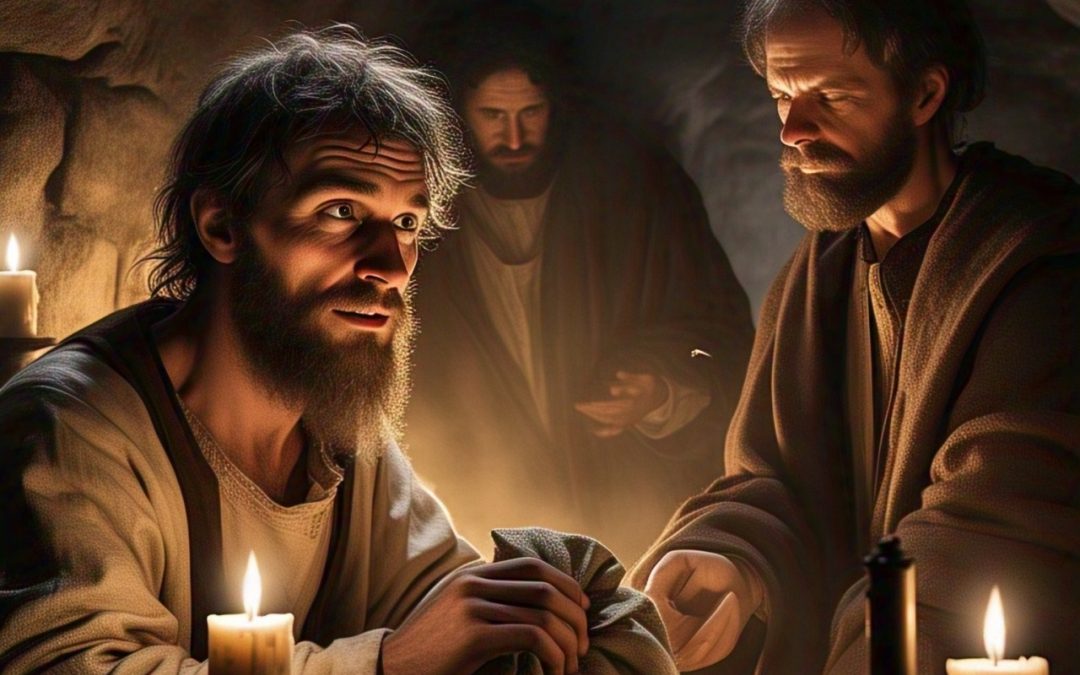
by Eron Henry | Apr 16, 2025 | Lent 2025
Holy Wednesday is a somber milestone in the Passion narrative—a day marked not by grand public teachings or miraculous displays, but by hidden betrayal and sinister plotting. While Jesus continues His ministry, forces of darkness gather in the shadows, revealing the depths of human duplicity and the staggering cost of divine love.
The Gospel accounts of this day focus primarily on Judas Iscariot, who undertakes perhaps the most infamous betrayal in human history. Having walked with Jesus for three years—witnessing His miracles, hearing His teachings, and sharing in His intimate moments—Judas now approaches the religious authorities with a chilling proposition: “What will you give me if I deliver him over to you?” The agreed price—thirty pieces of silver—echoes the ancient valuation for a slave’s life (Exodus 21:32), a paltry sum for betraying the Son of God.
The tragedy of Holy Wednesday lies not merely in the act of betrayal but in its intimacy. Judas was not an outsider or declared enemy, but one who broke bread with Jesus, one who had been trusted with the group’s finances, one who had been called “friend.” His betrayal reminds us that sometimes the deepest wounds come from those closest to us.
Yet amid this darkness, we must recognize God’s sovereign purpose. What appears as the triumph of evil is paradoxically the pathway to humanity’s redemption. The very conspiracy that seeks to eliminate Jesus becomes the means by which salvation is accomplished. The silver that changes hands as blood money will soon purchase a potter’s field, fulfilling ancient prophecy (Zechariah 11:12-13).
Holy Wednesday challenges us to examine our own hearts. Like Judas, we too can harbor mixed motives, disappointments with God’s plans, or secret sins that gradually distance us from Christ. What begins as small compromises can culminate in betrayal if left unaddressed. Yet unlike Judas, we are offered the opportunity for genuine repentance and restoration.
Prayer
Lord,
On this Holy Wednesday, we pause to remember how You were sold for thirty pieces of silver by one who called You friend. Your heart knew the pain of betrayal even as You continued the journey toward the cross.
Search our hearts today. Reveal to us the ways we too have betrayed You—through our silence when we should speak, our compromise when we should stand firm, our denial when we should acknowledge You before others.
Guard us from the self-deception that allowed Judas to rationalize his actions. Show us our true motivations and purify our hearts from all that is not of You.
We confess that like Judas, we have valued lesser things above You—comfort, security, reputation, wealth. Forgive us for the times we have traded Your presence for worldly gain.
In a world of betrayal and broken trust, make us people of integrity and faithfulness. By Your Spirit, empower us to remain loyal to You even when the path is difficult or unpopular.
May we never forget the cost of our redemption, purchased not with silver or gold, but with Your precious blood.
In the name of Christ, who endured betrayal to secure our salvation.
Amen.
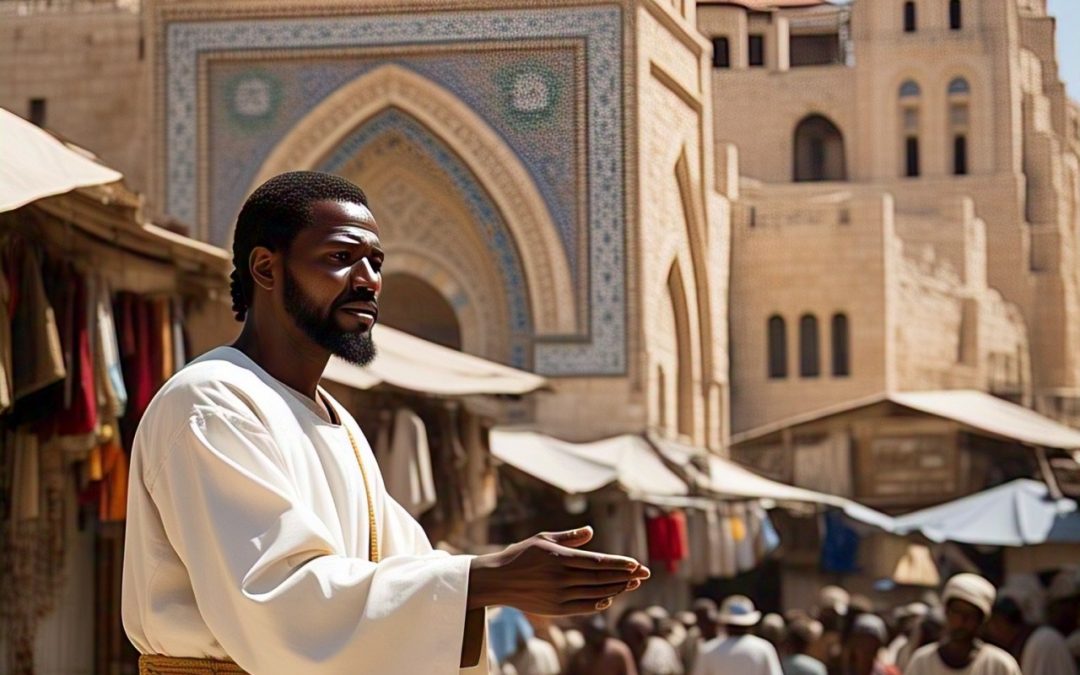
by Eron Henry | Apr 15, 2025 | Lent 2025
After cleansing the Temple the previous day, Jesus returns to Jerusalem to engage in some of His most profound and challenging teachings. This day reveals a Messiah who confronts religious hypocrisy and articulates divine truth with unwavering authority.
In the Temple courts, Jesus faces a barrage of questions designed to trap Him. The religious and political powers conspire to undermine His growing influence, yet each encounter reveals their spiritual bankruptcy and highlights Christ’s divine wisdom. When asked about paying taxes to Caesar, He deftly avoids their trap: “Give to Caesar what is Caesar’s, and to God what is God’s.” When the Sadducees attempt to discredit the resurrection with a convoluted scenario, Jesus exposes their misunderstanding of both scripture and God’s power.
The parables Jesus shares this day are particularly pointed. The Parable of the Tenants directly confronts the religious leaders, portraying them as corrupt stewards who have violated their sacred trust. The Parable of the Wedding Banquet warns that many who seem invited to God’s kingdom will ultimately reject it, while unexpected others will fill the banquet hall.
Perhaps most sobering is the Olivet Discourse, where Jesus foretells both the destruction of the Temple and the end of the age. He reminds His followers to remain vigilant and faithful, for no one knows the day or hour of His return.
Holy Tuesday challenges us to examine whether we truly recognize divine authority or merely pay it lip service. It asks whether we are like the religious leaders who knew scripture but missed its Author standing before them, or like those who humbly received Jesus’ words as truth.
Prayer
Lord of Truth and Authority,
On this Holy Tuesday, we remember how You stood in the Temple courts, speaking truth that confounded the wise and powerful of this world. Your words cut through pretense and illuminated hearts.
Examine us today as You examined the religious leaders then. Where we have embraced appearances over substance, correct us. Where we have twisted Your word to suit our desires, straighten our thinking.
Grant us discernment to recognize Your voice amidst the competing claims of our age. Help us to be not merely hearers of Your word, but faithful doers who build our lives on the solid foundation of Your truth.
May we live in constant readiness for Your return, with lamps trimmed and hearts prepared. Keep us from growing complacent or distracted by the concerns of this world.
We submit to Your authority, Christ Jesus, knowing that in Your wisdom alone can we find the path to life abundant and eternal.
Amen.






Recent Comments